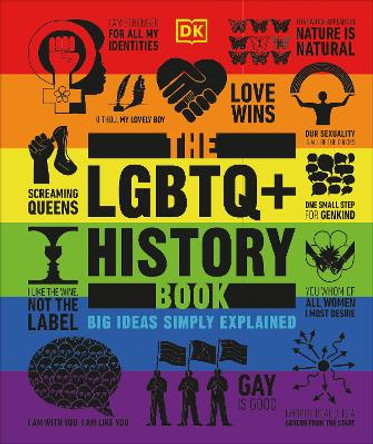Description
About the Author
Cameron Gibelyou is a faculty member at the University of Michigan, where he develops and teaches original, innovative multidisciplinary courses, including "Popular Science," "Predicting the Future," and "Tours of the Past." He has taught Big History at both the high-school and college levels and serves as science advisor and teacher consultant for the Big History Project. His PhD is in physics, with a specialization in astrophysics and cosmology. Douglas Northrop is Professor of History and Middle East Studies at the University of Michigan, where he teaches world/global and Big History, Central Asian studies, and the history of empire, environment, and culture. His other books include An Imperial World: Empires and Colonies Since 1750 (Pearson, 2013), A Companion to World History (Wiley-Blackwell, 2012), and the prize-winning Veiled Empire: Gender and Power in Stalinist Central Asia (Cornell University Press, 2004). He is now working on a study of natural disasters along the Eurasian frontier.
Reviews
How do you write histories of all of time? How do you handle Time itself, or the moment of Creation? Or Evolution, or Causation and Contingency, or the spooky power of mathematical reasoning? And what is Entropy? In nine beautifully written chapters, Cameron Gibelyou and Douglas Northrop explore the perils and delights of writing, reading, and interpreting Big History. * David Christian, author of Maps of Time: An Introduction to Big History *
Racing from the Big Bang to the present can make for a jarring ride, rocketing readers across enormous differences of evidence and idiom. But Northrop and Gibelyou positively delight in these disciplinary leaps. Rather than smoothing over the gaps, Big Ideas makes them integral to the story, exploring how each jump in scale plunges us into a new scholarly community with its own history and habits. In the process, the authors shed as much light on the evolution of the university as of the universe * and turn Big History into a lively forum for integrating cross-disciplinary knowledge. A game-changing contribution.Karen Wigen, Stanford University *
This is an important book that should be read by people in every discipline. It is a thoughtful and insightful examination about our ideas of how we originated, where we come from, how we got here, what our conditions mean now, and where we may be headed. Written by a historian and an astrophysicist, it integrates ideas about the sciences and the humanities and seeks the unity that universities should be seeking. From physics to philosophy and from chemistry to cultural studies, this book contributes significantly to our ideas about what it means to be an educated person in our time. * Lowell Gustafson, Villanova University *
In this important book, Cameron Gibelyou and Douglas Northrop offer a conversation among different ways or approaches to understanding the major ideas that we use or take for granted in everyday life and in scholarly fields. In both big and little ways, they examine knowledge from across different disciplines, answering questions and raising new ones. In each chapter, they invite readers to look behind the curtains and to join in the discussion. * Bob Bain, University of Michigan *
Big Ideas is essential reading for all who are interested in universal histories and will be absolutely invaluable to anyone teaching in the Big History field. It is a good choice for upper-division undergraduates and graduate students and could be seamlessly integrated into a general historiography course. Most important, this "Guide to the History of Everything" is a pathbreaking discussion on universal histories, about what we know and how we think about what we know. * David C. Fisher, World History Connected *
Book Information
ISBN 9780190201210
Author Cameron Gibelyou
Format Paperback
Page Count 464
Imprint Oxford University Press Inc
Publisher Oxford University Press Inc
Weight(grams) 748g
Dimensions(mm) 155mm * 231mm * 23mm









